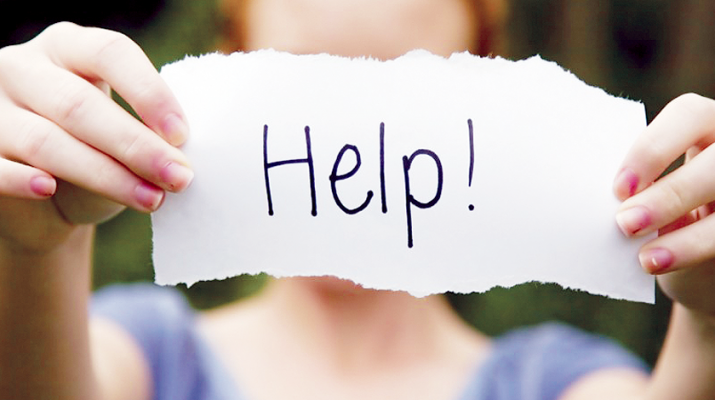There are strategies to counter agony of depression, risk of suicide
By David L. Podos
In its ongoing public interest series, the Utica Housing Authority recently sponsored a free workshop for the public on battling depression and suicide.
Speakers in attendance were Kathy Peters, director of marketing and development for the Center for Family Life and Recovery; John Enders, licensed master social worker and private therapist, and Willijah Dawson, founder of the Bee Rose Foundation.
According to Enders, there are several ways people can help themselves deal with depression.
“I am a big proponent of exercise and diet. Research shows that exercise and diet help in the recovery process. Avoid eating sugar when possible, get enough protein in your diet, and eat plenty of fresh fruits and vegetables,” Enders said. “Sleep is very important too. Try your best to stick to a regimen that is familiar, and go to bed the same time and get up the same time. Of course, seek professional help if needed and always remember, depression can be treated.”
Peters encourages people to speak out. “We can’t be afraid to ask someone we know and love, ‘Are you suicidal?’ If they are, then help them connect to services.
“Once that is done, follow up and see how your friend or loved one is doing. Knowing that someone cares is a tremendous asset to a person who is dealing with suicidal thoughts.”
Dawson recently co-founded the Bee Rose Foundation (www.facebook.com/beerosefoundation.)
She lost her niece from suicide. In conjunction with her sister, they formed the nonprofit organization, working with people to prevent suicide.
“We work primarily with young adults aged 15 to 21 years of age. One of the problems we see is that there is not enough education about suicide out there,” Dawson said. “We definitely need more education about suicide and prevention in the school system. It should be part of the curriculum.”
According to the American Foundation for Suicide Prevention, there’s no single cause for suicide.
In New York, on average, one person dies by suicide every five hours. It is the 12th leading cause of death in New York and second leading cause among those aged 15-34.
It is the fourth leading cause of death for those aged 35-54.
Suicide most often occurs when stressors and health issues converge to create an experience of hopelessness and despair. Depression is the most common condition associated with suicide, and it is often undiagnosed or untreated.
Conditions like depression, anxiety and substance abuse problems, especially when unaddressed, increase risk for suicide. Yet it’s important to note that most people who actively manage their mental health conditions go on to engage successfully in life.
Warning signs
Something to look out for when concerned that a person may be suicidal is a change in behavior or the presence of entirely new behaviors.
This is of utmost concern if the new or changed behavior is related to a painful event, loss or change. Most people who take their lives exhibit one or more warning signs, either through what they say or what they do:
Be suspect if a person talks about:
— Killing themselves
— Feeling hopeless
— Having no reason to live
— Being a burden to others
— Feeling trapped
— Unbearable pain
Watch out for behaviors that may signal risk, especially if related to a painful event, loss or change:
— Increased use of alcohol or drugs
— Looking for a way to end their lives, such as searching online for methods
— Withdrawing from activities
— Isolating from family and friends
— Sleeping too much or too little
— Visiting or calling people to say goodbye
People who are considering suicide often display one or more of the following moods:
— Depression
— Anxiety
— Loss of interest
— Irritability
— Humiliation/shame
— Agitation/anger
According to the National Institute of Mental Health, suicide is a major public health concern.
Over 40,000 people die by suicide each year in the United States. It is the 10th leading cause of death overall.
Suicide is complicated and tragic but it is often preventable. Suicide does not discriminate. People of all genders, ages, and ethnicities can be at risk.
Often family and friends are the first to recognize the warning signs of suicide and can be the first step toward helping an at-risk individual find treatment with someone who specializes in diagnosing and treating mental health conditions.
The following organizations can be contacted to assist any person who may have suicidal thoughts or for anyone who might know of some who is suicidal.
— Mobile Crisis Assessment Team, 1-800-273-8255
— Suicide Prevention Hot Line, 315-732-6228

